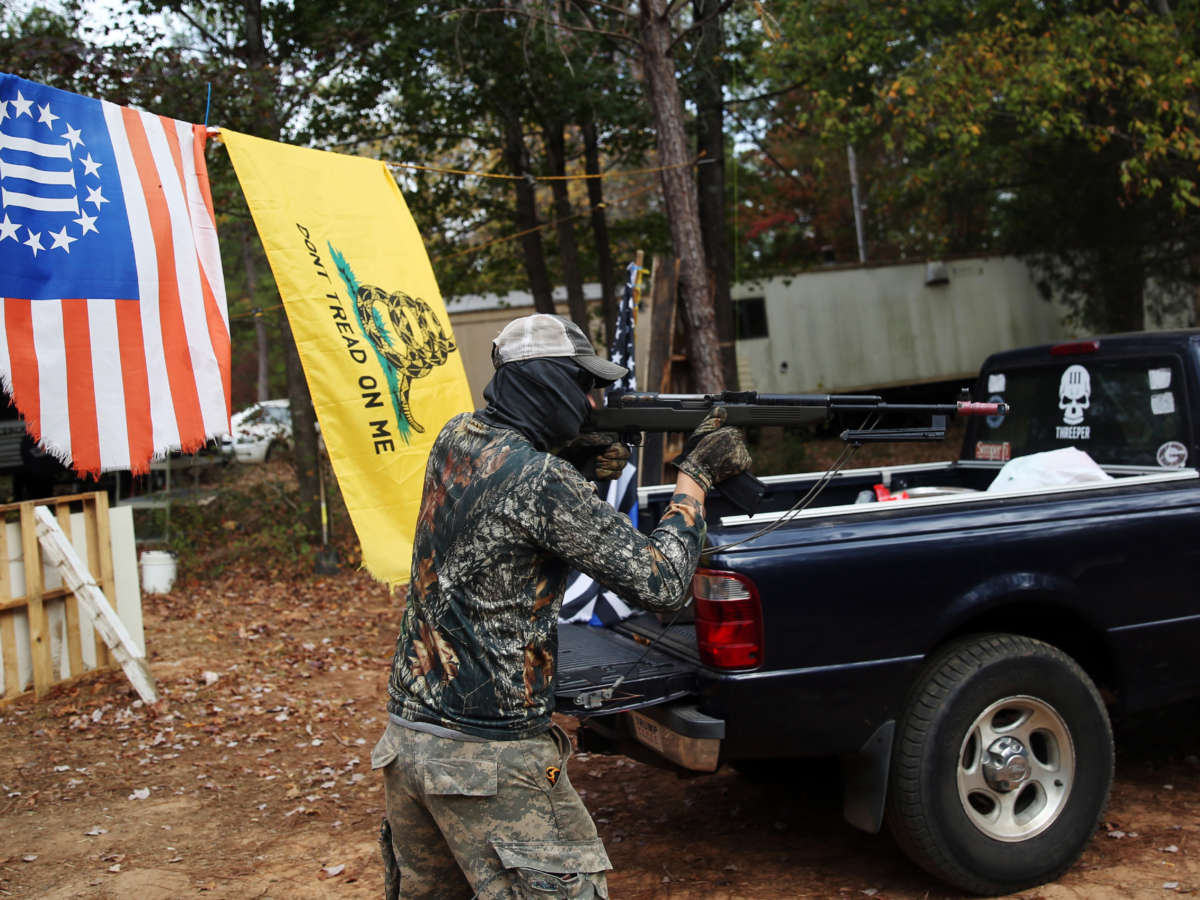In the wake of domestic “terrorism,” civil rights groups often warn that the expansion of federal law enforcement powers will likely be used to target Muslims, Black activists, leftist protesters, and other citizens.
So, when House Democrats rushed this week to pass legislation to prevent domestic terrorism in the wake of the racist mass shooting that left 10 Black people dead in Buffalo, New York, Rep. Cori Bush (D-Missouri) and other progressives added “guardrails” to the legislation to ensure federal law enforcement remains focused violent extremists and white supremacists.
“As an activist, I know first-hand the ways in which law enforcement agencies have targeted, surveilled and prosecuted marginalized communities,” Bush said in a statement on Thursday.
After internal negotiations among Democrats and intense partisan debate, the House narrowly passed the Domestic Terrorism Prevention Act of 2022 by a 222-203 vote on Wednesday. The legislation would direct the Department of Homeland Security, the Department of Justice and the FBI to open offices that analyze and monitor domestic terror threats. The new offices would be required to submit biannual reports on threats posed by white supremacists, with a focus on “white supremacist and neo-Nazi infiltration” of law enforcement agencies and the military.
“I was proud to lead my colleagues in a successful effort to strengthen protections in this bill for protesters, narrow the domestic terrorism definition, and enhance the scope of congressional oversight to ensure that civil rights and civil liberties continue to be protected,” Bush said.
With the exception of Illinois Rep. Adam Kinzinger, all Republican lawmakers opposed the bill, including those who voted for similar legislation in 2020. A few months after that voice vote in September 2020, the January 6 attack on Congress by pro-Trump fanatics, militia groups and fascist gangs changed the landscape of conservative politics.
Republicans now argue the bill would expand federal bureaucracy and encourage law enforcement to surveil right-wing activists, including the so-called “parental rights” movement that is harassing educators and attacking public schools over conspiracy theories about LGBTQ people and “critical race theory.”
Republicans also criticized the focus on investigating white supremacists in law enforcement, a serious threat that is routinely downplayed by conservatives and pro-police pundits. Researchers have warned for years that racist hate groups have infiltrated police and immigration enforcement agencies, and journalists have exposed troves of online posts on Facebook and other sites revealing that law enforcement officers across the country embrace extremist and racist ideas.
In an interview with NPR before the vote, House Majority Leader Steny Hoyer said GOP votes against the bill would effectively say that “the Republican Party is not as focused on domestic terrorism as they need to be, because they think a lot of their ‘stand back and stand by guys’ may be implicated.” Hoyer was alluding to violent groups such as the Proud Boys and far right militias that are egged on by Trump and the GOP’s turn toward Christian nationalism and conspiracy theories.
“Unfortunately, the Republican Party has become the party of unfettered white supremacist violence,” Bush said.
Earlier versions of the bill enjoyed some bipartisan support but raised red flags for civil rights groups. In 2019, the American Civil Liberties Union (ACLU) warned that an earlier version would “double down on an already flawed domestic terrorism framework that has long targeted marginalized populations, ranging from Muslim, Arab, Middle Eastern, and South Asian communities and Black civil rights activists to animal and environmental rights activists, as well as other groups the government views as having ‘unpopular’ or controversial beliefs.”
Mainstream Democrats have voted to extend controversial mass surveillance powers, for example, even when the Trump administration had control of federal law enforcement agencies. Progressives and groups such as the ACLU vigorously opposed these moves, given the government’s extensive history of targeting Muslims, anti-war activists and movements for racial justice.
In response to these concerns, Bush and other progressives worked with Democrats to narrow the definition of domestic terrorism, expand congressional oversight of the new terrorism offices to protect civil liberties, and add a provision ensuring that people cannot come under surveillance for simply attending protests.
Bush said she previously led efforts to hold police accountable for the “surveillance and targeting” of Black protesters who rose up in response to the police murders of Breonna Taylor and George Floyd in 2020. By adding civil liberties “guardrails” and requiring federal agencies to focus on violent white supremacists, who are widely considered the top domestic terror threat, progressives likely hope to prevent Republicans from using the law to target Black and anti-fascist activists if they win the White House.
Black activists say lawmakers cannot rely only on law enforcement to combat far right violence. Bush said white supremacist violence “is not an aberration — it is embedded in American institutions.”
Amara Enyia, a policy and research coordinator for the Movement for Black Lives, said white supremacists are emboldened when the government fails to hold them accountable for terror, and racial justice activists appreciate legislation acknowledging that police departments across the U.S. have been “safe havens for anti-Black domestic terrorists.” However, combating anti-Black terrorism means addressing systemic racism without providing the state with more tools for incarceration and violence.
“While this act is timely, it is only a piece of the puzzle,” Enyia said in an email. Preventing racist terror means addressing the anti-Black racism that is embedded in institutions throughout this country from the criminal legal system, healthcare system, economic system, education systems, and so many others.”
While the domestic terrorism bill encourages federal law enforcement to focus on violent hate groups and white supremacist chatter online, it does not enhance criminal penalties or authorize new methods of surveillance.
The Biden administration issued a statement this week in support of the legislation and said it has already working with federal law enforcement to make domestic terrorism, including hate crimes, a priority. It’s unclear whether the bill will meet the 60-vote threshold for passing in the Senate.


